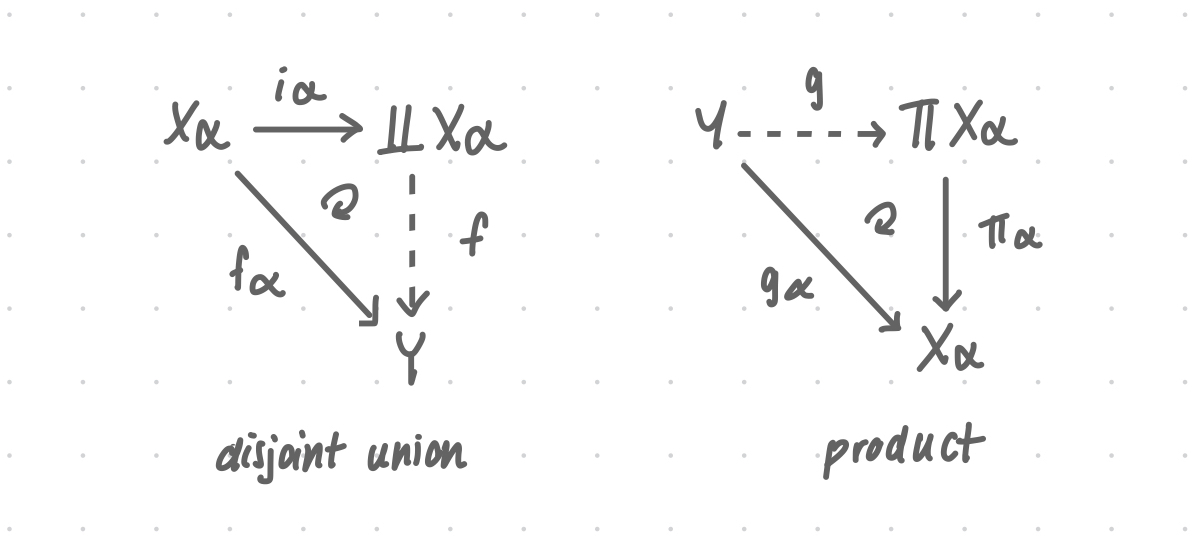Overview
A universal property of a topology says what data is preserved when restricting a continuous map to that topology.
Subspaces
Theorem: Universal property of the subspace topology
Let be a function between topological spaces, and be a subset equipped with the subspace topology. If and is the function obtained by restricting the codomain of , then is continuous if an only if is continuous.
Products and disjoint unions
Theorem: Universal property of the product topology
Let be topological spaces. If and are functions, then the function defined by
is continuous if and only if and are. That is, a continuous map to the product is the same data as a pair of continuous maps, one to and one to .
An arbitrary product is the “universal” set with the projection maps . That is, if is a set with the maps , there exists a unique such that for all , we have .

On the other hand, the disjoint union is the “universal” set accepting functions from each . This means that for any collection of functions , there exists a unique function such that for all , we have .
Theorem: Universal property of the disjoint union
A function between topological spaces is continuous with respect to the disjoint union if and only if both the restrictions and are continuous. That is, the function is the same data as knowing
where is the natural inclusion injection.
wip Example application HW 6.1, 7.1?
- closed if compact
- discrete, then .
Quotients
Theorem: Universal property of quotient spaces
If is a topological space and is an equivalence relation on , the projection map is continuous.
Moreover, if is a continuous map that is constant on equivalence classes, meaning that if , then , then induces a continuous map defined by
and . We say that “factors through” the quotient .
Review
- Check that defined above is continuous if and only if each is continuous. 🔺